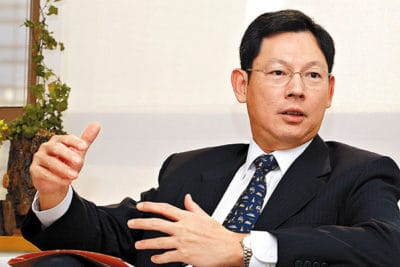
The party may soon be over for Hong Kong’s bubbly housing market
In Hong Kong, even micro-apartments just big enough to fit a car cost many times what the typical household earns each year. But there are signs that the world’s most unaffordable housing market may be reaching its limits, as a frenzy of home sales begins to cool and some observers predict a slump in prices.
Secondary home sales are on track to dip to a four-month low in June, according to data from Hong Kong’s Land Registry and local agency Midland Realty, with 2,533 apartments being transacted in the secondary (or resale) market in the first 20 days of the month. If this pace continues, the month of June will see about 3,800 secondary apartment sales, a decline of 18.4 percent compared to May and the lowest amount since February, which saw 2,821 such sales.
Hong Kong’s Appetite for Pricey Homes May Be Hitting a Ceiling
The Hong Kong government’s struggle to control a surging housing market appears to be taking effect. Last November, Hong Kong’s then Chief Executive Leung Chun-ying raised the standard stamp duty on home transactions to 15 percent, in a move to curb speculation, including by out-of-town buyers.
The new measure, which exempted first-time local homebuyers, had the unintended consequence of driving higher demand in the market for new apartments while sales of existing homes (the so-called secondary market) plummeted. Property developers added fuel by offering stamp duty subsidies of as much as 100 percent in order to entice buyers.
Last month, Hong Kong authorities tried again to tighten the screws on prospective homebuyers. The city’s de facto central bank, the Hong Kong Monetary Authority (HKMA), announced a series of mortgage tightening measures aimed at borrowers with multiple loans and overseas income sources. And last week, the Authority raised the base interest rate by 25 basis points to 1.50 percent following a rate hike in the US. The head of the HKMA at the same time cautioned that mortgage rates were likely to gradually increase, coinciding with a “downward property cycle.”

Norman Chan, head of the Hong Kong Monetary Authority
Four of Hong Kong’s largest commercial banks have already raised their mortgage rates by 10 basis points late last month, in the wake of official tightening measures aimed at controlling property lending risks. Although mortgage rates in the city remain as low as 2 percent, compared with 10 percent in 1997, the prospect of further rate hikes in the future could be dampening market sentiment.
Hong Kong’s K&K Property is among the developers feeling the effect of softening sales. Eager buyers snapped up units in K&K’s upcoming Victoria Skye luxury residential project when the first batches of apartments were put on sale starting late last month. But the developer managed to transact only 80 out of 206 units offered in the most recent round of sales, despite some 2,300 prospective buyers registering their interest, according to an account in the South China Morning Post.
Is the Housing Market Headed for a Plunge?
Some observers are predicting a further drop-off in sales this year, driven by an unusually large influx of new housing supply. Louis Chan Wing-kit, vice chairman of the Asia Pacific residential department at local agency Centaline Property, told the South China Morning Post that he sees secondary home sales plunging by up to 20 percent in the second half of 2017.
“Developers will offer their projects at competitive prices in view of more than 10,000 new flats available for pre-sale in the second half,” Chan told the newspaper. “Property firms will continue to offer flexible financing schemes to entice sales.”
A recent report by Deutsche Bank argues that housing prices in the city are cresting and could fall by up to 48 percent over the next ten years, with vacancy climbing to nine percent from the current four percent. Hong Kong’s aging population is predicted to be less and less able to afford the cost of shelter, while a glut of new homes, totalling 93,781 in excess of demand from 2017 to 2026, could cause developers to slash prices.
Hong Kong remains the least affordable housing market in the world, according to the latest Demographia International Housing Affordability Survey, which found that the city’s median house price was 18.1 times the median household income last year. That marked the seventh year in a row that Hong Kong topped the global list for housing misery. Home prices per square foot are reported to be nearly 90 percent above their 1997 peak, which was followed by a dramatic six-year bust.
Leave a Reply